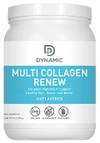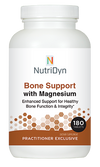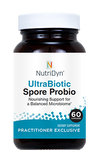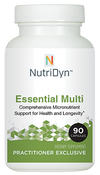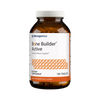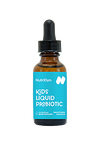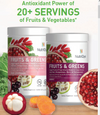Food, glorious food. There's no shortage of incredible foods that help your body fight inflammation. But beyond following an anti-inflammatory diet, supplements can be a powerful tool in helping you lower inflammation. Dieticians believe the following supplements can significantly reduce inflammation
1.0 Quercetin
2.0 Turmeric
3.0 Vitamin D
4.0 Magnesium
5.0 Alpha lipoic acid (ALA)
6.0 Probiotics
7.0 Melatonin
Best Supplements To Reduce Inflammation,
- News
- 20 Jun, 2021
Before you consider adding any supplements to your diet, Dr. Direct4u.com strongly recommends consulting your Health Care Provider .
The attached blog has been edited, Reed Wilson, director of Health and Communications from this original site: https://www.eatthis.com/best-supplements-reducing-inflammation/
"Best Supplements for Reducing Inflammation, Say Dietitians"
Food, glorious food. There's no shortage of incredible foods that help your body fight inflammation. But beyond following an anti-inflammatory diet, supplements can be a powerful tool in helping you lower inflammation. Dieticians believe the following supplements can significantly reduce inflammation.
1.0 Quercetin
2.0 Turmeric
3.0 Vitamin D
4.0 Magnesium
5.0 Alpha lipoic acid (ALA)
6.0 Probiotics
7.0 Melatonin
With countless products on the market, it can be hard to know what to look for and which ingredients you should zoom in on in your search. That's why we reached out to trusted registered dietitians and docs to share the best supplements for reducing inflammation. As always, talk to a healthcare professional before adding a new supplement to your routine. Read on, and for more on how to eat healthy, don't miss 7 Healthiest Foods to Eat Right Now.
Food, glorious food. There's no shortage of incredible foods that help your body fight inflammation. But beyond following an anti-inflammatory diet, supplements can be a powerful tool in helping you lower inflammation.
1.0 Quercetin

"Quercetin is a plant compound that supports the body by removing toxins, decreasing cell damage, and reducing inflammation," shares Joanna Foley, RD, CLT. "It is also one of nature's strongest antihistamines and may help fight seasonal allergies," she adds. FYI: quercetin is found in foods like kale, blueberries, and broccoli, so it's certainly a good move to load up on these nutrient-dense fruits and veggies as much as possible for its quercetin content, as well as many other antioxidants and health benefits.
READ MORE: Best Supplements for Better Skin, According to Experts
2.0 Turmeric

Looking for an anti-inflammatory boost? You may already be sprinkling this potent spice on everything or using the fresh herb in curries, salad dressings, marinades, and more, but for enhanced potency, taking it in supplement form could be a good idea. "The active compound curcumin, found in turmeric, has a well-established history as a potent anti-inflammatory," says Shahzadi Devje, RD, CDE, MSc, aka Desi~licious. "To some folks' astonishment, its remarkable effectiveness has been likened to that of anti-inflammatory drugs utilized in medicine—without any significant side effects."
If you struggle with mild inflammation, as a registered dietitian and certified diabetes educator, Devje suggests incorporating one teaspoon of turmeric per day or two grams into your diet. "With severe inflammation, the literature suggests supplementing with 500 mg of curcumin per dose for about eight-to-12 weeks and evaluate accordingly," she adds.
RELATED: Sign up for our newsletter to get daily recipes and food news in your inbox!
3.0 Vitamin D  Yes, you can get it from sunshine and your diet, but many of us don't get enough. "This nutrient has been found to often be deficient in people suffering from pain and inflammation. Vitamin D actually acts more like a hormone and can dramatically lower inflammation when levels are normalized," shares Sanjiv Lakhia, DO, a Board-Certified Physiatrist. "In a study of more than 9,000 participants, those with low vitamin D reported more back pain, more cases of severe back pain, and higher limitations in their daily activities. Supplementing appropriately led to improvements in pain and function."
Yes, you can get it from sunshine and your diet, but many of us don't get enough. "This nutrient has been found to often be deficient in people suffering from pain and inflammation. Vitamin D actually acts more like a hormone and can dramatically lower inflammation when levels are normalized," shares Sanjiv Lakhia, DO, a Board-Certified Physiatrist. "In a study of more than 9,000 participants, those with low vitamin D reported more back pain, more cases of severe back pain, and higher limitations in their daily activities. Supplementing appropriately led to improvements in pain and function."
READ MORE: 5 Amazing Benefits of Vitamin D, According to Experts
Dr. Lakhia is also a fan of this widely studied natural anti-inflammatory supplement (it's a mineral found in foods that's essential for your body to function). "Low cellular levels of magnesium have been associated with elevated levels of CRP, a protein marker of inflammation in the blood," he shares, drawing our attention to this study. "Supplementing with magnesium can stabilize inflamed nerves and serve as a natural muscle relaxer and pain reliever," he continues, further commenting that highly absorbable chelate forms like magnesium glycinate are best when utilized for inflammation. Read on: Surprising Side Effects of Taking Magnesium Supplements, Say Dietitians.
This omega-3 healthy fat may be well worth adding to your routine in supplement form. "This is a powerful antioxidant that is shown by research to help lower inflammatory markers in the blood," says Foley. "ALA may help protect the body from many different types of diseases and help fight against them if already present."
As Trista K. Best, MPH, RD, LDN a registered dietitian at Balance One, says "When anyone mentions the benefits of probiotics, it usually has something to do with improving digestion. In other cases, it's about restoring the gut flora after a course of antibiotics." However, as Best explains, the benefits of probiotics extend far beyond your gut. "Improving this microbiota with probiotics has been shown to improve this interaction and reduce inflammation and joint pain. The healthy bacteria in probiotic supplements work to counter the 'bad' bacteria causing your symptoms," she says.
Indeed, there's an encouraging body of research that seems to indicate that probiotics can help certain chronic conditions and diseases from arthritis to depression. "In rheumatoid arthritis, ulcerative colitis, and multiple sclerosis, microbial alteration by probiotics has been demonstrated to alleviate gastrointestinal symptoms and multi-organ inflammation in several randomized controlled studies," says Mary Claire Haver, MD, a Board-Certified OBGYN, certified culinary medicine specialist and founder of the Galveston Diet, an online nutrition program for women in midlife focusing on an anti-inflammatory diet, pointing to this research.
You may have heard of melatonin for its role in helping you sleep better, but there's more to this hormone. "Melatonin acts as an antioxidant, cleaning up free radicals that can upregulate inflammation," says Caitlin Beale, MS, RDN. "It's been shown to help the body turn down the production of inflammatory chemicals," she adds, highlighting this study and this one when it comes to melatonin and inflammation.
Speaking of sleep, check out The #1 Best Thing to Eat for Better Sleep, Says a Dietitian.











